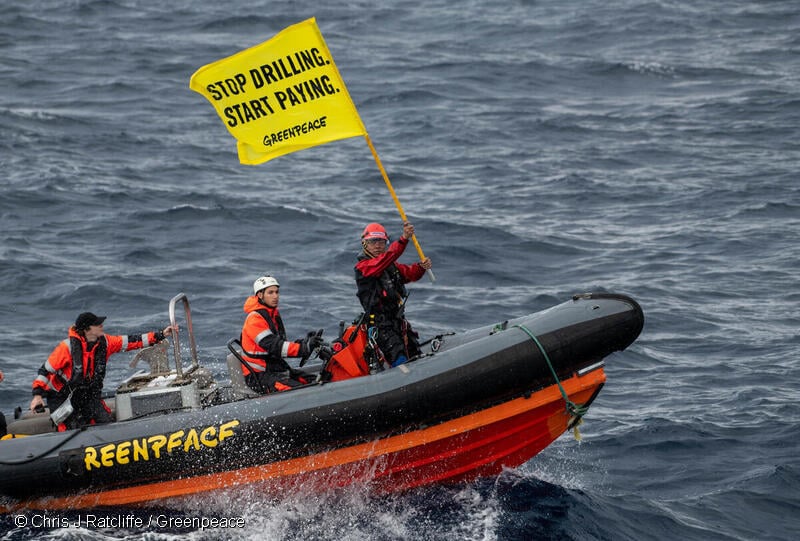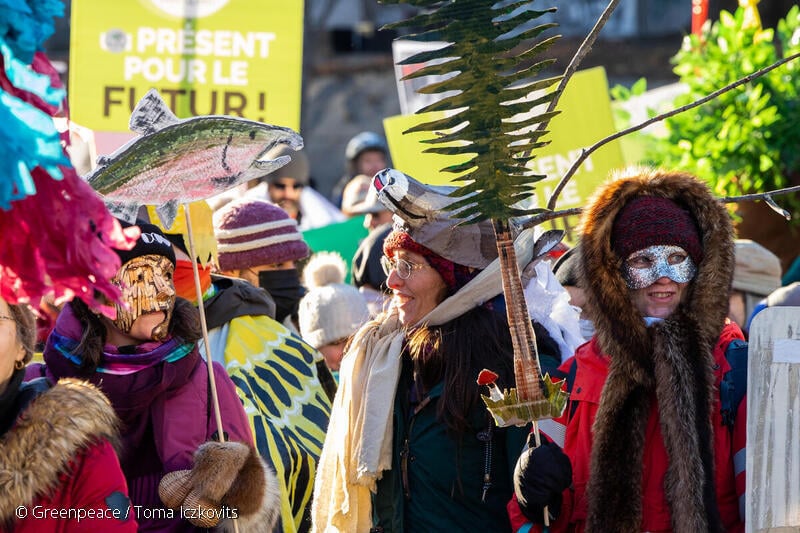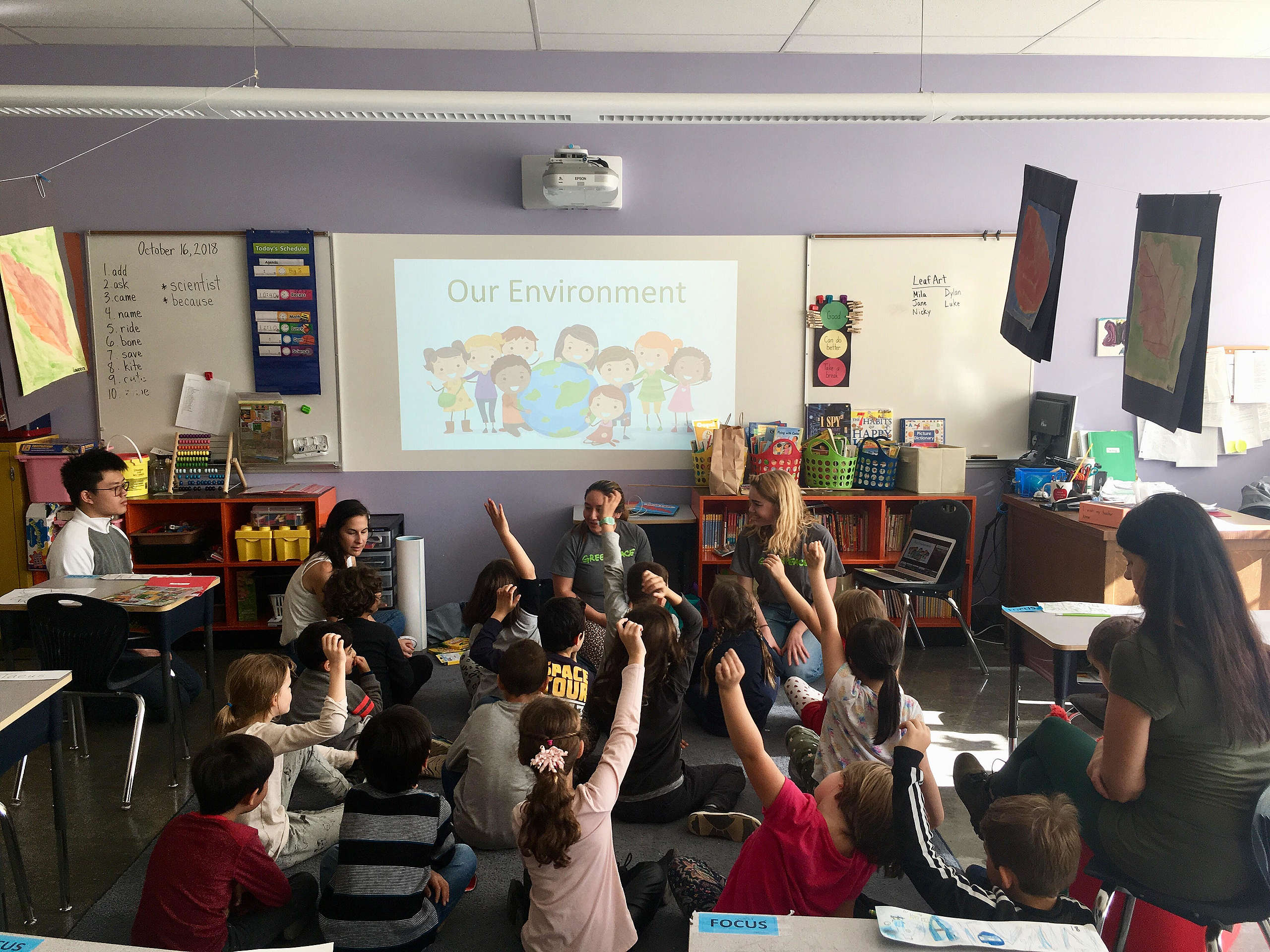“Bird-dogging” is when you and other people from your movement show up at public appearances of elected officials, political candidates or other decision makers and ask them to do something you think is right. Wherever they go, you’re there, putting them on the spot, and insisting on a straight answer. We use this tactic to get politicians to stop avoiding a specific issue and force them to either commit, or look foolish dodging direct questions from constituents.
“Bird-doggers” speak directly to a decision maker who has the power to decide the outcome of an important issue. They ask pointed questions at public events about issues they care about in order to elicit a response, making it clear to the decision maker that they need to be on the right side of the important issue. They also educate the media and the public along the way. Skillful “bird-doggers” team up with members of their communities to persistently express interest in — and concern over — the decision maker’s position until they’ve gotten an adequate response or commitment.
It’s one of the most effective activist tactics in the toolbox! Here’s why: Politicians of all parties determine their policy positions in part by listening to what people back home are doggedly asking them to do. They are very sensitive to their constituents because they want to be re-elected. If they hear similar requests from voters at public meetings or events, they are significantly more likely to say “yes”.
It is also a public inquiry, often with influential people listening. Members of the media often attend politicians’ public events, bird-dogging plays an important role in getting positions and demands “on record.” We all know that politicians don’t always keep their promises, so this is a vital part of holding them accountable to their constituents.
In these times of COVID-19, where governments are spending billions in response to the crisis that could jumpstart a greener and more resilient society, and companies are trying to exploit the crisis for nefarious ends, it is more important than ever to make your voice heard. Social distancing guidelines now mean that some of the normal ways of engaging with your Member of Parliament (MP) are no longer possible, but we hope this guide empowers you to speak up and make sure your MP hears what you have to say, even when you’re on your computer at home.
Virtual town halls, webinars, Facebook Live streams, and Twitter are a great place to start virtual bird-dogging!
Step-by-Step: How to Bird-dog
Recruiting your team
Bird-dogging is a lot more impactful if you have a team of people who show up at your MP’s public appearances, rather than just one person.
- Build a team (4-5 people is a good number. But if there can be more of you, it’s even better!).
Here are few roles:- Question askers: The name is self-explanatory, they ask the questions. Great for people who love the spotlight, but even if you’re shy, it’s not a problem! Just write down your question in advance and speak from the heart when you read it.
- Recorders: They will be in charge of recording audio/video of the interaction to ensure you get your MP on the record. This will be useful for the advocacy work that follows!
- Communication gurus: They will help you track your MP to learn what events they’re appearing at, and when you ask the question they help get the word out. They will also make sure that any significant statement or engagement on behalf of the decision maker, makes it to the public eye (holding them accountable). They can live tweet the event, share key messages/images on social media and can also invite the media and set up interviews if you have a spokesperson in your group.
- Helpers: They can assist those in the other roles and learn from them.
Researching your MP’s schedule and identify their online events
- Follow your MP on social media, sign up to their email list and set up a Google Alert for their name. Do some research on the internet, on their website or even by calling their office directly, to identify interesting events they’ll be attending or organizing where you could ask a question.
- Register for the events.
- Get familiar with the platforms where events are hosted (Facebook Live video or Zoom). Train yourself and learn how they work before your meeting!
- Find out what you can about the format of the online events ahead of time. Try to find out the agenda and content of the event in advance. If this information isn’t publicized, reach out to the organizers directly. This way, you will have a better idea of when the best moments are to interact with your MP and you will not miss your opportunity.
- You will only be able to ask 1 or 2 questions at a given event, so prepare them wisely. Plan a session to brainstorm and write down your questions.
- Narrow down the list to 2 or 3 questions once you know more about the agendas of the events.
The art of asking spot-on questions
Don’t give your representative an easy out with a simple yes or no question. Focus on What, Why, and How.
What: Asking what a candidate thinks about a policy forces them to demonstrate their priorities and be specific and concrete in the position they take.
Why: Asking why an MP supports a policy pushes them to explain the reasoning behind their positions. Their explanation can expose weaknesses or help showcase the benefits of a given policy.
How: Asking how your MP will follow through on a promise is essential to understanding their theory of change and getting them to commit to a specific course of action. It reveals whether or not they view the issues with a sense of urgency.
Long-form questions:
- Start with something personal about yourself.
- You can reference your MP’s past positions or statements related to your question.
- Ask a question that puts them on the spot (What, Why, How).
Ex: My name is Lydie, I live in Montreal and I’m the mother to a toddler. Last year, you declared a climate emergency. You have also promised to look into a green stimulus package. With time ticking away and our window to stop the devastating impacts of climate change closing, how are you going to use the economic recovery from COVID-19 to ensure Canada meets its climate commitments? Please explain why you think this is the right approach.”
Short-form question:
- Be concise and get right to the point.
- Ask a question that puts them on the spot (again and always: What, Why, How).
Ex: How will you ensure COVID-19 recovery spending doesn’t make the climate crisis worse? Will you promise to attach climate conditions to any bailout for high-polluting sectors like oil or aviation, and if not why not?
These are only guidelines, not rules. In some cases you might want to ask “When”: “When will you be hosting a town hall on this topic?” If you only have 10 seconds, a simple yes or no question might be better. Give yourself a bit of flexibility when preparing your questions!
Important: Politicians are masters at the art of avoiding answering questions that make them uncomfortable. You can cut through their game by pointing out that they have not answered your question and politely insisting that they answer it.
How to ask your MP a question during an online event
- Be ready to record and document your bird-dogging right from the start of the event.
- One team member can take a video of their computer screen with their cell phone:
- You can use this free software : https://obsproject.com/ and watch this video to learn how to record your screen.
- You can also take screenshots during the events.
- One team member can take a video of their computer screen with their cell phone:
- The secret to getting your question asked:
- Be ready as soon as the question period starts. Raise your hand first and fast. You can quickly write your question in the chat section.
- You may be asked to write a draft of the question before they choose you. Writing a softball question will help you get called (keep the curve ball for when you get the mic).
- When it’s time to ask your question, don’t panic and trust yourself! Be polite, confident and ask your question. Many of the audience members will be grateful to you for speaking up.
If they do not answer your question adequately, try to ask a follow up. Politely, and without being aggressive, continue to press for your question to be answered.
- Sometimes, it may take a few people asking the same question before it gets recognized by the moderators as important. If possible, have various people from your team asking similar questions in the chat.
How to ask your MP questions on social media
- Follow your MP on social media (Twitter, Facebook, Instagram or LinkedIn).
- Remember to be polite yet firm. Encourage them to keep sharing and go deeper into the topic, while not harassing your MP with too many questions.
- When they post something related to one of the specific topics you identified with your team, you can ask your questions in the comment section or as a reply. Introduce yourself and be concise, just as you would in an in-person event.
- You can also engage them by tagging them in a post and asking about their position on your issue or a specific piece of news (e.g. “What is your position on X or Y?”).
Share, debrief and plan next steps
- Share your story (this can inspire other people to do the same):
- Share what happened on your social media (e.g. by crafting a short video with your footage or by designing a meme with free software like Canva). Contact us for advice. [email protected]
- Write a blog about the decision maker’s answer and get it published online. Email us if you are interested! [email protected]
- To get the story in the news, you can also write a letter to the editor of your local newspaper! Contact us for advice. [email protected]
- As a team, discuss learnings, successes and how you can do even better next time!
- Identify what went well, what obstacles you faced, and any improvements you could make for next time. Be supportive of each other and respectful of how different people might prefer taking different approaches and roles. Be sure to celebrate your successes (publicly if you succeed in getting a commitment from your MP)!
- Pay attention to how your MP responded, and adjust your future questions and plans accordingly.
- Keep planning more bird-dogging events until you get the answers you want!




